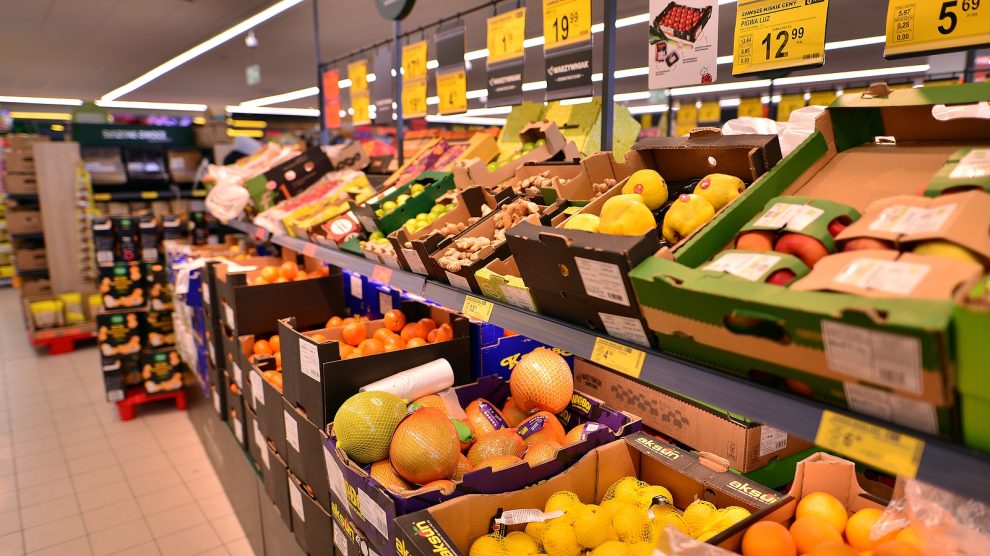Inflation is finally coming down across the European Union, but the highest rates continue to be found in the east of the bloc.
Amid continuing high prices for food and energy, the 11 countries in emerging Europe which are members of the European Union (EE-11) continue to struggle with high inflation, all reporting annual rates in March far higher than the EU average of 8.3 per cent.
- Russia’s invasion of Ukraine and cost-of-living crisis dim growth prospects in emerging Europe and Central Asia
- Renewables and digital key to sustaining growth in Poland
- Latvia cancels Skulte LNG project, but the Baltic reliance on gas persists
Indeed, the EE-11 account for the 11 highest rates of inflation in the bloc. With price increases far above the EU norm, countries in the region have been among the hardest impacted economically by Russia’s invasion of Ukraine.
Growth has in turn been hampered by high inflation and central bank attempts to tackle it through aggressive interest rate hikes.
The highest annual rates of inflation in the EU were recorded in Hungary (25.6 per cent), Latvia (17.2 per cent) and Czechia (16.5 per cent), according to Eurostat, the European Commission’s statistics directorate, followed by Estonia (15.6 per cent), Poland and Lithuania (both at 15.2 per cent).
Annual inflation stood at 14.8 per cent in March in Slovakia, 12.2 per cent in Romania and 12.1 per cent in Bulgaria.
Both Croatia and Slovenia have annual inflation rates above 10 per cent.
The worst may be over
The trend, however, is positive. With the exception of Slovenia, inflation fell in March in every country in the EE-11, in some places considerably (almost three per cent in Latvia and by more than two per cent in Estonia and Lithuania).
Even Hungary saw a small fall, of 0.2 per cent, suggesting that the peak has been reached.
In a note published last month, ING, a bank, suggested that inflation in Hungary would see a “marked deceleration” from April, although it still expects full-year average inflation of 19 per cent – by far the highest rate in the EU.
Hungary’s current rate is the country’s highest since 1996.
On April 19, the deputy governor of the Hungarian National Bank, Barnabás Virág, nevertheless suggested that the time may have come to cut interest rates, currently at 18 per cent, perhaps as early as April 25 when the bank’s board will meet to discuss the issue.
In an interview with a Hungarian business newspaper, Világgazdaság, Virág said that market sentiment had improved so much recently that it had opened the way for a “multi-step” path to rate normalisation.
“The question of changing the 18 per cent key interest rate can only be on the agenda of subsequent rate decisions,” said, adding: “a patient approach prioritising market stability” was still needed.

Polish troubles
The fate of inflation in the region remains heavily tied into how its EU partners to the west cope with rising prices and high interest rates. A sharp fall in Germany’s annual inflation rate in March, from 9.3 to 7.8 per cent would have cheered markets to the east, not least in Poland, whose government faces an election in the autumn and which is facing a year of subdued growth despite rising prices.
According to the World Bank, Poland’s economic growth is projected to decelerate to 0.7 per cent in 2023, from 4.9 per cent last year. Prior to Covid-19 and the war in Ukraine, Poland was one of Europe’s fastest-growing economies. Growth averaged 3.7 per cent a year over the decade to 2020.
Elevated energy and food prices will continue to weigh on household demand in 2023 and will heavily affect poorer segments, who devote 50 per cent of their monthly spending on food and energy. The share of the population at risk of anchored poverty is expected to remain elevated at one-two per cent above 2019 levels.
“Inflation erodes the real incomes of people – and high inflation affects the poorest much more than the richest segments of the population,” says Ivailo Izvorski, World Bank Chief Economist for Europe and Central Asia region.
“To better protect vulnerable groups and promote economic growth, policies should take into account the varying impacts of inflation across different income levels and use more precise indicators to measure the actual cost of high prices on the poorest.”
Unlike many news and information platforms, Emerging Europe is free to read, and always will be. There is no paywall here. We are independent, not affiliated with nor representing any political party or business organisation. We want the very best for emerging Europe, nothing more, nothing less. Your support will help us continue to spread the word about this amazing region.
You can contribute here. Thank you.







Add Comment